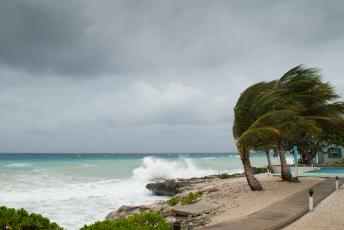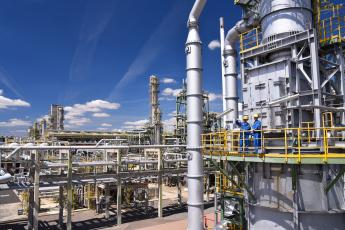We enter the official 2020 hurricane season in June with a full appreciation that this year brings additional challenges as our nation continues a fight against a different yet deadly type of storm. COVID-19 has undoubtedly changed the way we live and work — and it has changed our hurricane preparedness plans.
To add to this year’s challenges, before the official beginning of the 2020 hurricane season the Atlantic already had two named storms, Arthur and Bertha. As if right on schedule, Cristobal began to form on June 1, 2020.
Meteorologists at the National Oceanic and Atmospheric Administration (NOAA) are forecasting an “above-normal” 2020 Atlantic hurricane season, calling for 13 to 19 named storms, with six to 10 having the potential to become hurricanes. AccuWeather is also expecting a busy hurricane season in the Atlantic Basin, calling for 14 to 20 tropical storms, with as many as seven to 11 becoming hurricanes.
While officials are urging people to begin to prepare now by stocking up on water, batteries, flashlights and other emergency essentials, our U.S. refiners and petrochemical manufacturers need no reminders — they live emergency preparedness every day. Continuous safe operation of our facilities requires being ready for a variety of potential emergency situations, including hurricanes, flooding and now an on-going pandemic during hurricane season.
Our members stand ready to do what needs to be done to keep everyone safe – from making sure that resources are where they need to be in the event of supply disruptions; to regular communications and coordination with government at the local, state and federal levels; and ensuring our employees and communities have the supplies they need. Not only do our members develop comprehensive emergency preparedness plans, we also conduct our own and participate in strategic government exercises to improve and streamline our emergency response.
While much of our members’ hurricane preparedness plans remain the same this hurricane season, some adjustments may need to be considered because of the pandemic. This includes possibly dispersing the workforce rather than rallying at a single area as is typically done when an evacuation is necessary; screening employees entering facilities for fevers; ensuring ride-out crews and suppliers are healthy; weighing the risks of evacuation against staying at home; planning added virtual communications with local authorities; and using drones to quickly access site damage instead of employees, among others.
Even in the midst of an unprecedented pandemic, our past hurricane planning and on-going commitment to ensure the safest work environments possible have readied our industries to face this year’s season.
Our role at AFPM is to assist our members and government agencies in connecting if needed and to make sure members stay informed of the abundance of free resources available. Click here for AFPM’s hurricane preparedness resources.


